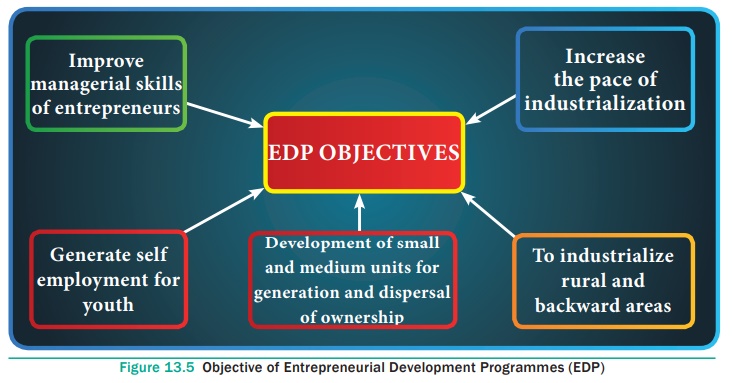The Comprehensive Guide to EDP Services: Boosting Efficiency and Productivity

The Comprehensive Guide to EDP Services. Staying competitive in today’s fast-paced business environment requires employing cutting-edge technologies and optimizing operations. Electronic Data Processing (EDP) services are indispensable to the success of this endeavor.
This comprehensive guide will delve into the world of EDP services, examining what they are, how they function, and why they are essential to businesses in the digital era.
What are EDP Services?

EDP services, which is an abbreviation for Electronic Data Processing services, comprise a suite of automated data management procedures utilizing computers and related technologies. These services include data acquisition, storage in a secure location, processing, analysis, and reporting.
In the digital age, EDP services are indispensable for organisations seeking to streamline operations, improve decision-making, and acquire a competitive edge.
They utilise advanced technologies, such as OCR and data analytics tools, to efficiently transform unstructured data into valuable insights, thereby enhancing efficiency, scalability, and reducing manual labour.
EDP services promote innovation and data-driven decision-making across multiple industries, including finance, healthcare, e-commerce, and manufacturing.
Key Components of EDP Services

Data Capture
Data capture is the first step in Electronic Data Processing (EDP) services, which entails the acquisition of data from various sources. This procedure gathers information using technologies such as Optical Character Recognition (OCR), barcode scanning, and digital forms.
The objective of data capture is to automate and expedite data entry, thereby reducing human error and manual labor.
EDP services ensure that businesses have access to accurate and current information by efficiently collecting data from multiple inputs, laying the groundwork for subsequent data processing, analysis, and reporting.
This fundamental stage is essential for organisations that wish to utilise data for decision-making and operational optimisation.
Data Storage
Data storage is an essential element of Electronic Data Processing (EDP) services, as it ensures the safe and effective preservation of data. To store and manage information, EDP services utilise databases and cloud storage solutions.
These storage systems protect data from loss, unauthorized access, and corruption by providing scalability, accessibility, and robust security measures. EDP services facilitate processes such as data processing, analysis, and reporting by storing data in a structured and organized manner.
Data storage is crucial for businesses seeking to leverage the power of their data for improved decision-making and operations.
Data Processing
Data processing is a fundamental component of Electronic Data Processing (EDP) services, comprising the transformation of unstructured data into meaningful information. Data cleansing, validation, and transformation are performed by EDP services using algorithms and automation.
This procedure assures the precision, consistency, and relevance of data. By efficiently processing data, businesses can extract valuable insights and patterns, facilitating data-driven decision making and operational optimisation.
Data processing facilitates duties such as transaction processing, risk analysis, and customer profiling, which play a vital role in numerous industries, from finance to healthcare. In the digital era, it forms the basis for informed decision-making and innovative solutions.
Data Analysis
Data analysis is a crucial phase in Electronic Data Processing (EDP) services, involving the examination of processed data to derive insights, patterns, and correlations. EDP services utilize statistical techniques, machine learning algorithms, and data analytics instruments to extract valuable information from data.
This analysis enables businesses to make informed decisions, recognise trends, and obtain a deeper understanding of their operations, customers, and markets.
From healthcare to e-commerce, data analysis is indispensable because it provides actionable insights that drive strategy, enhance consumer experiences, and enhance processes. It enables businesses to remain competitive and agile in today’s data-driven environment.
Reporting and Visualization
Reporting and visualization are essential components of EDP services, transforming complex data into formats that are readily understood. Charts, graphs, dashboards, and reports are utilized by EDP services to effectively convey insights to stakeholders.
This data visualisation assists decision-makers in recognising trends and patterns, thereby facilitating data-driven decision-making and boosting overall business performance.
Why EDP Services Matter

Improved Efficiency
EDP services considerably improve productivity by automating data-related tasks, decreasing manual labor, and streamlining procedures. This automation enables workers to concentrate on strategic tasks, thereby enhancing overall productivity.
The time saved and the error reduction also contribute to operational efficiency, making businesses more agile and competitive in the current digital environment.
Enhanced Decision-Making
EDP services facilitate improved decision-making by providing accurate, real-time data and insightful insights. This data-driven strategy enables businesses to make informed decisions, adjust to shifting market conditions, and seize opportunities swiftly.
It promotes more strategic decision-making across multiple business aspects, resulting in enhanced outcomes and competitiveness.
Scalability
The more prosperous a business becomes, the more information it will need. EDP services offer scalability, which enables businesses to adapt to fluctuating data volumes and processing demands without making considerable infrastructure investments.
Competitive Advantage
Businesses that are able to leverage the power of data are able to gain a significant advantage in competitive markets. Using data to gain market insights, personalize consumer experiences, and optimize business processes, EDP services enable businesses to remain ahead of the competition.
Use Cases of EDP Services

Financial Services
EDP services are indispensable in financial services for transaction processing, risk analysis, and fraud detection.
These services enable banks and financial institutions to make swift and accurate decisions while mitigating financial risks and ensuring regulatory compliance, thereby boosting consumer confidence and operational efficiency.
Healthcare
EDP services are indispensable in the healthcare industry for patient record management, medical invoicing, and clinical research. Through data analysis, they streamline administrative processes, improve patient care, and contribute to medical advancements.
These services enhance the efficacy and outcomes of healthcare, resulting in improved patient experiences and medical advancements.
E-commerce
EDP services play a crucial role in inventory management, order processing, and consumer profiling in the e-commerce industry. They enhance consumer shopping experiences, optimize supply chain operations, and facilitate personalized marketing efforts.
E-commerce companies rely on EDP services to optimise operations and maintain their competitiveness in the online market.
Manufacturing
EDP services are essential for quality control, supply chain administration, and production planning in the manufacturing industry. These services enhance product quality, reduce waste, and improve overall efficiency in the manufacturing process.
By utilising data-driven insights, manufacturing companies can effectively meet customer demand while maintaining high production standards.
Challenges and Considerations
The implementation of EDP services is fraught with obstacles, such as data security, regulatory compliance, and initial infrastructural costs. Organizations must protect data from vulnerabilities, adhere to data privacy regulations, and invest in robust systems.
Achieving a balance between security, compliance, and cost is essential for the successful implementation of EDP services.
FAQ Related to EDP Services
What are EDP services, and why are they important for businesses?
EDP services, or Electronic Data Processing services, are a collection of computer- and technology-based automated data management procedures.
They are indispensable to businesses because they streamline operations, improve decision-making, and provide a competitive advantage through efficient data administration and analysis.
How do EDP services differ from traditional data processing methods?
By automating data processing activities, minimizing manual work, and enabling real-time data analysis, EDP services differ from conventional approaches. They use cutting-edge technology and algorithms to produce faster, more precise outcomes.
What industries benefit the most from EDP services?
EDP services are used widely in many different industries. Finance (for transaction processing and risk analysis), healthcare (for patient record management), e-commerce (for inventory and order management), and manufacturing (for quality control and supply chain optimization) are some of the industries that stand to gain the most.
What are the key challenges when implementing EDP services?
Managing the initial infrastructure expenditures and maintaining data security and compliance with data regulations are among the difficulties in establishing EDP services.
For successful implementation, organizations must establish a balance between these variables.
How can EDP services contribute to better decision-making?
EDP services offer reliable and rapid data analysis, empowering businesses to take wise decisions.
They provide information on market situations, consumer trends, and consumer behavior, assisting firms in making timely adjustments and strategic decisions.
Are EDP services scalable for growing businesses?
EDP services can be scaled, yes. As firms expand, they can adjust to shifting data volumes and processing needs. Organizations may effectively manage their data as they grow thanks to this scalability.
What role do EDP services play in data security?
EDP services play a vital role in data security by instituting measures to protect data from unauthorized access, breaches, and corruption. They ensure data integrity and confidentiality through encryption and access controls.
How do EDP services contribute to operational efficiency?
EDP services contribute to operational efficiency by automating data-related tasks, reducing errors, and freeing up employees to focus on strategic activities. This streamlines processes and leads to improved productivity.
Can EDP services be customized to specific business needs?
Yes, EDP services can be customized to meet specific business needs. They are flexible and adaptable, allowing organizations to tailor them to their unique data processing and analysis requirements.
What is the future outlook for EDP services in the business world?
The future of EDP services looks promising, as businesses increasingly rely on data-driven insights for decision-making and competitiveness.
As technology continues to advance, EDP services will likely evolve to offer even more sophisticated data processing and analysis capabilities.
Conclusion
In an era where data is king, Electronic Data Processing (EDP) services have emerged as a vital tool for businesses seeking to thrive in the digital landscape. From data capture to analysis and reporting, EDP services streamline operations, enhance decision-making, and provide a competitive edge.
By embracing EDP services, organizations can harness the power of data and unlock new possibilities for growth and innovation in the modern world of business.
- Your Ultimate Guide to Travel Insurance for Adventure Sports
- A Guide to Renters Insurance for Pet Owners: Pet-Proof Your Policy
- Safeguard Your Future: Understanding Identity Theft Insurance
- Safeguard Your Event: Understanding Event Cancellation Insurance
- Everything You Need to Know About Critical Illness Insurance Riders
- Home Equity Loans vs. HELOCs: Which is Right for You?












